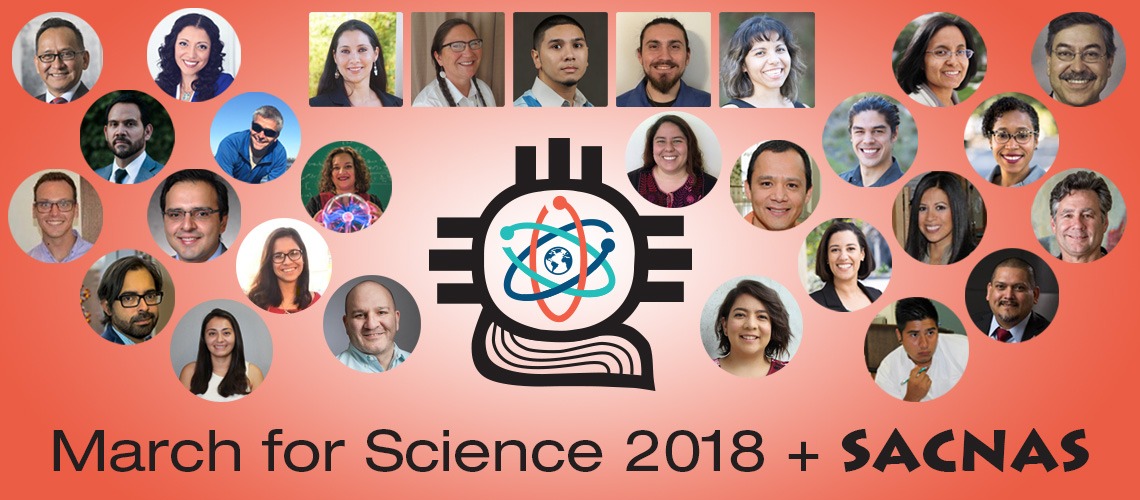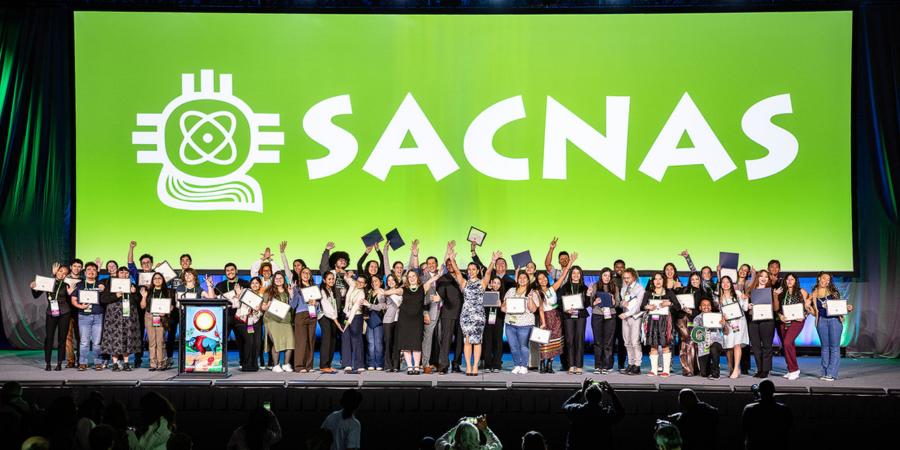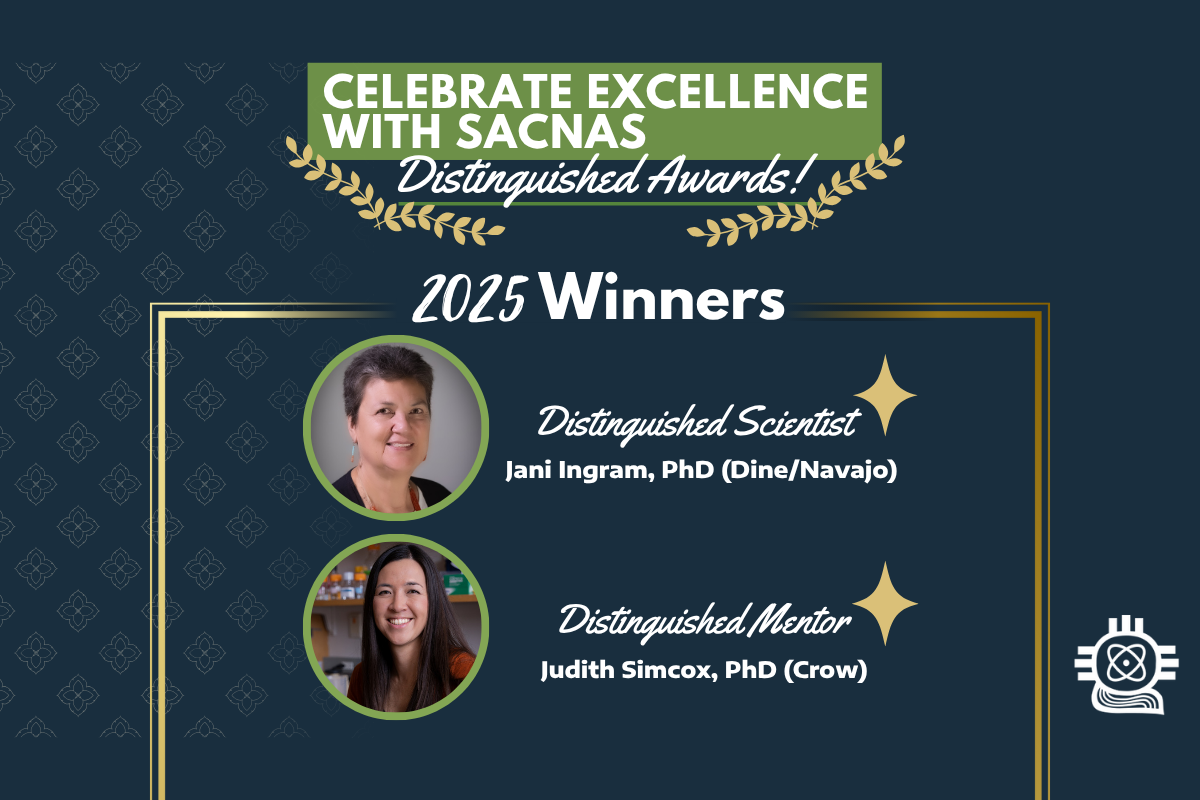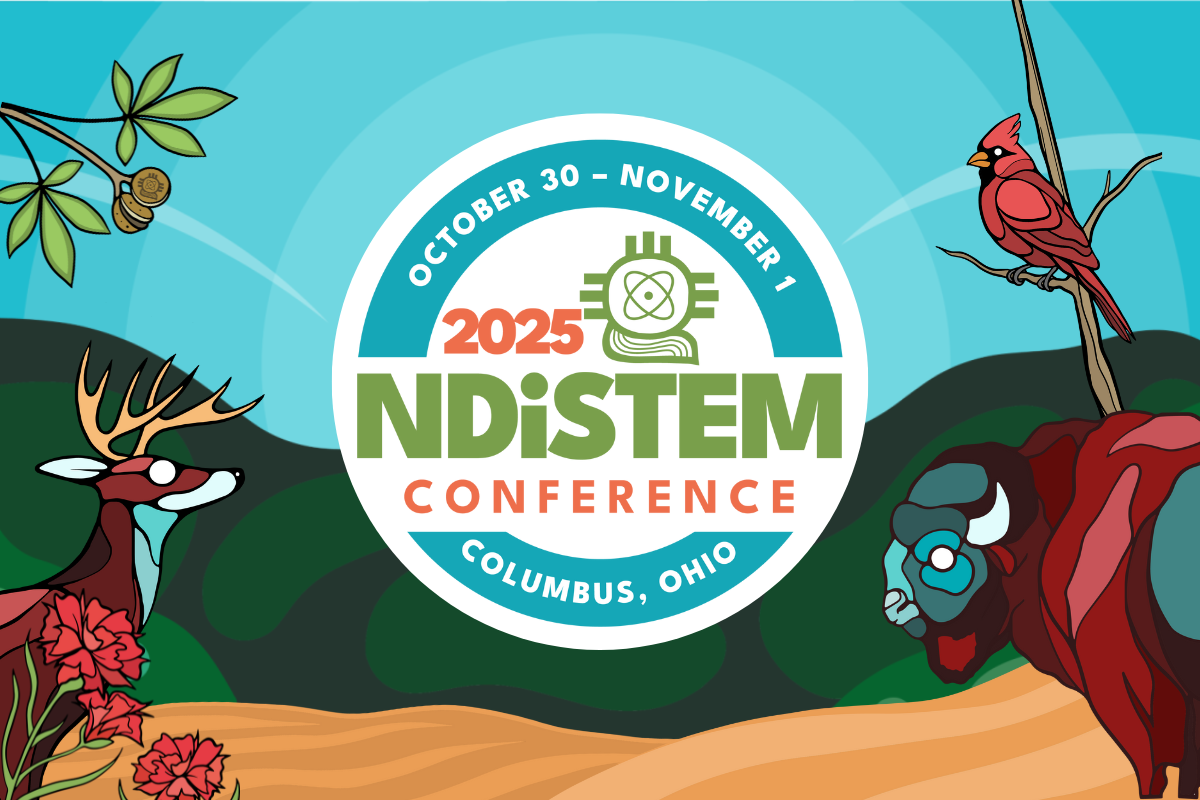FOR IMMEDIATE RELEASE
Thursday, March 28, 2018
Rooted in Science, Culture & Community: Announcing March for Science Speakers & Organizers
#TrueDiversity in STEM and SACNAS will be well represented at the March for Science on April 14, 2018. SACNAS members across the country are serving as organizers and speakers for satellite marches, ensuring that equity and inclusion are central to this national conversation on science.
Our slogan for this year’s March for Science is “Strong Roots Support A Growing STEM.”
The roots symbolize our collective background and ancestors, the corn represents sacred land and that which sustains us, and the fist with the beaker reminds us that we must take action to make sure we are heard.
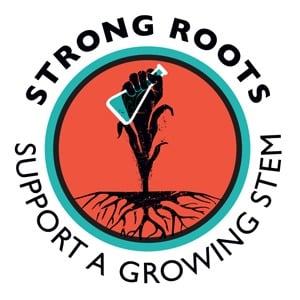
Through our participation as speakers and organizers, we are celebrating our full selves and bringing our cultures, our voices, and our science to the work.
Robin D. López, Diversity & Inclusion Chair and Social Media Lead for the March for Science – Bay Area says, “I’m passionate about efforts with the March for Science – Bay Area because there is no better place to help amplify voices for diversity, equity, and inclusion in science. Achieving true diversity starts with powerful partnerships like SACNAS + March for Science, which is why I’m beyond excited about the continued commitment to support people of marginalized backgrounds.”
2018 March for Science – SACNAS Speakers
(See below for full biographies.)
Boston: Adán Colón-Carmona, PhD – plant biology
Denver: Marino Resendiz, PhD – chemistry
Los Angeles:
Ximena Cid, PhD (Yaqui) – astrophysics
Carlos G. Gutiérrez, PhD – chemistry
Tepring Piquado, PhD – policy, neuroscience
Patricia Silveyra, PhD – biochemistry
New York City:
LeManuel Lee Bitsóí, EdD (Diné) – ethnography, bioethics
Edgardo Sanabria-Valentín, PhD – biomedical science
Phoenix: Liliana Rodriguez – kinesiology
San Diego:
Omayra Ortega, PhD – mathematics
Alberto “Beto” Vasquez – biology
Micah Jasey Savin (Lakota) – neuroscience
Samantha Payne Landgrave – biochemistry and biology
Francisco Fernandez – molecular biology
San Antonio:
Rodolfo Jimenez, PhD – cellular & molecular biology
Stephanie Perez, PhD – pharmacology
Marina Suarez, PhD – geological sciences
San Francisco: Kevin L. Keys, PhD – genomics
Santa Cruz: Amanda Brambila – molecular, cell and developmental biology
Seattle: Marco Hatch, PhD (Samish) – environmental science
Tucson: Neo Martinez, PhD – ecology
Washington DC:
Evelyn Valdez-Ward – ecology and evolutionary biology
Corey Welch, PhD (Northern Cheyenne) – biology and STEM education
2018 March for Science – SACNAS Organizers
(See below for full biographies.)
Bay Area:
Robin López – civil engineering
Brian Merino – physics, astronomy
Los Angeles: Heidy L. Contreras, PhD – biology
San Diego: Angelica Rocha, PhD – neuroscience
Washington D.C.: Rosalyn LaPier, PhD (Blackfeet/Métis) – ethnobotany and traditional knowledge
About SACNAS
SACNAS is an inclusive organization with a 45-year history of fostering the success of Chicano/Hispanic & Native American scientists, from college students to professionals, in attaining advanced degrees, careers and positions of leadership in science.
Today, the organization serves nearly 6,000 members and has 115 student and professional chapters throughout the United States and Puerto Rico. SACNAS influences a larger STEM community of over 25,000 through outreach, advocacy, and production of The National Diversity in STEM Conference. Learn more about SACNAS at sacnas.org, Facebook, or Twitter.
Speaker Biographies
LeManuel Lee Bitsóí, EdD (Diné) : Dr. Lee Bitsóí is a critical ethnographer and bioethicist who currently serves as Chief Diversity Officer at Stony Brook University, Long Island, NY, where he also maintains a faculty appointment as Research Professor in the Department of Technology and Society. Prior to Stony Brook, Dr. Bitsóí served in diversity leadership roles at Dartmouth, Harvard, Georgetown and Rush University Medical Center in Chicago. At the national level, Dr. Bitsóí is a member of the National Research Advisory Council for the Department of Veterans Affairs and the National Advisory Council for the National Conference on Race and Ethnicity (NCORE). As an advocate for indigenous scientists and scholars, Dr. Bitsóí also serves as the Chair for the Native American Affairs Committee for the Society for Advancement of Chicanos/Latinos and Native Americans in Science (SACNAS). Dr. Bitsóí is an indigenous scholar whose research and publication portfolio includes social justice topics, access and equity issues, bioethical concerns, and understanding the impact of intergenerational trauma for indigenous people and communities. Admirably, Dr. Bitsóí has devoted his career to enhancing opportunities for underrepresented minority students to become scientists, science educators and scientifically-informed community members.
Amanda Brambila: “El camino que tomamos, se define día a día.” Amanda Brambila was born in San Diego and raised in Tijuana, Mexico. A first generation college student, Amanda is finishing her third year in the Molecular, Cell and Developmental Biology PhD Program at UC Santa Cruz and working alongside other students and faculty to increase diversity in STEM. She is the current president of the UC Santa Cruz SACNAS chapter.
Ximena Cid, PhD: Dr. Ximena C. Cid obtained her B.A. in Astrophysics from the University of California, Berkeley in 2005 and both her master’s and Ph.D. in Physics and Applied Physics from the University of Texas, Arlington in 2010 and 2011 respectively. She has expertise in understanding what barriers and challenges effect diverse populations in astro/physics environments. She also has expertise in Physics Education Research (the teaching and learning of physics). Ximena is currently serving on the board of the National Society of Hispanic Physicists (NSHP) and has served on the Committee on Diversity for the American Association of Physics Teachers (AAP). She is a life member of SACNAS.
Adán Colón-Carmona, PhD: At UMass Boston, Adán Colón-Carmona is an associate professor and plant biologist studying growth control in response to internal and external environmental cues. Adán leads university initiatives that include research education activities geared towards diverse student populations. He has directed a series of programs aimed at broadening participation in the sciences and is an active member of the Society for the Advancement of Chicanos and Native Americans in Science (SACNAS) and active in the American Society of Plant Biologists. A mentor to 100s of undergraduates, Adán is dedicated to social change in higher education as a vehicle to improving people’s’ lives.
Francisco Fernandez: Francisco Fernandez is a first-generation Mexican-American college student, having immigrated alone to the United States at the age of eighteen. Francisco managed to learn English, obtain his GED and enroll in college while working at a car wash to support himself. Today, Francisco is graduating with his bachelor’s degree in Molecular Biology at California State University San Marcos (CSUSM) and is ready to transition into a Ph.D. in the biomedical research area. Francisco is the secretary of the SACNAS club at CSUSM where he advocates for diversity in science. Francisco aims to mentor educationally-at-risk students as a future scientist.
Carlos G. Gutiérrez, PhD: Carlos G. Gutiérrez grew up in Los Angeles and educated in its public schools. After the BS at UCLA and PhD at UC Davis he joined the faculty at California State University, Los Angeles where he is Distinguished Professor of Chemistry. In the past 15 years 153 underrepresented alumni of research training programs he administers completed the PhD; another 120 continue in PhD training. Gutiérrez was 2005 Carnegie Foundation US Professor of the Year; honored by former President Clinton with a Presidential Award for Excellence in Science, Mathematics and Engineering Mentoring; is a AAAS Lifetime Mentor; and a SACNAS Distinguished Undergraduate Mentor. He is a Senior Fellow of the California Council on Science and Technology, a Fellow of the AAAS, a life member of SACNAS, and a Fellow of the American Chemical Society.
Marco Hatch, PhD (Samish): Marco Hatch is an Assistant Professor of Environmental Science at Huxley College of the Environment, Western Washington University. Marco is marine ecologist with a Ph.D. in Biological Oceanography from Scripps Institution of Oceanography and a member of the Samish Indian Nation. Prior to WWU he directed the Salish Sea Research at Northwest Indian College. At WWU he has created a wonderfully diverse lab charged with preparing the next generation of environmental scientists and leaders through fostering respect for Indigenous knowledge and providing students with a solid background in scientific methods. His research focuses on the nexus of people and marine ecology, centered on Indigenous marine management.
Rodolfo Jimenez, PhD: Dr. Rodolfo Jimenez, Jr. is Director of STEM Initiatives for the Longhorn Center for Academic Excellence. As a STEM Coordinator he is responsible for assisting students in the Life Sciences academically, as well as advising students wanting to attend a health profession programs or graduate school after completion of their undergraduate degree. Dr. Jimenez is a native Texan coming from the Rio Grande Valley area. He obtained a B.S. in biochemistry from Texas State University and his Ph.D. in Cellular and Molecular Biology from the University of Texas at San Antonio. His dissertation focused on the characterization of the cytoplasmic domain of the anthrax toxin receptors. Since his undergraduate career, Dr. Jimenez has been involved in helping underrepresented minorities succeed in STEM, primarily through the Society of Mexican American Engineers and Scientists (MAES) and The Society of Advancement for Chicanos and Native Americans in Science (SACNAS). Currently, Dr. Jimenez sits on the advisory board for STEMed Labs, a nonprofit aimed at closing the gap in STEM education for the underserved in Austin, and on the Hispanic Quality of Life Commission for the City of Austin.
Kevin L. Keys, PhD: Kevin L. Keys is a postdoctoral scholar at UCSF, where he studies asthma genomics in ethnic minority children in the United States and Puerto Rico. His research interests span computational genomics, high-dimensional statistics, and scientific computing. He graduated in 2010 from The University of Arizona with degrees in mathematics and linguistics before studying at the Institute for Evolutionary Biology in Barcelona, Spain as a Fulbright Scholar. He completed his Ph.D from UCLA in 2016, where he developed open-source genomic analysis software. Parallel to his research interests, Kevin is deeply committed to increasing diversity in the American scientific workforce.
Samantha Payne Landgrave: Samantha Payne Landgrve embraces the scientific endeavor and diversity in STEM fields. She is a success story by many accounts that was only made possible by DACA.
Neo Martinez, PhD: Neo is the son of J. V. Martinez who was the first Chicano to receive a PhD in the physical sciences in the U.S. and helped establish SACNAS. Built on the deep appreciation of physical sciences instilled by his father, Neo received his degrees in Ecology from Cornell and UC Berkeley. Neo then became an Assistant Professor at San Francisco State University and then establish the Pacific Ecoinformatics and Computational Ecology Lab with colleagues in Berkeley. He is currently an Associate Professor at the University of Arizona. His is an international leader in the fields of ecology and especially ecological networks. Dr. Martinez is a life member of SACNAS.
Omayra Ortega, PhD: Using the tools from statistics, mathematics, public health and epidemiology, Dr. Ortega tackles the emerging health issues. She is deeply committed to broadening the participation of underrepresented minorities in STEM and mentoring students through the challenges of academia. She is a life member of SACNAS.
Stephanie Perez, PhD: Stephanie Perez received her B.S. in Biology in 2004 and her M.S. in Biology in 2007, both from the University of Texas at San Antonio. In 2014 Stephanie received her Ph.D. in Pharmacology from UT Health San Antonio in the laboratory of Dr. Daniel Lodge. As graduate student Stephanie successfully obtained an individual NRSA from NIMH and published 9 manuscripts in peer-reviewed journals, 6 of those as first author. She also received many awards and honors including the Armand J. Guarino Award for Academic Excellence and the Pharmacology/Neuroscience Award for academic excellence. As a post-doctoral fellow, Stephanie continues to excel as she secured her own funding from the San Antonio Life Sciences Initiative and continues to publish her research in peer-reviewed journals. The current focus of Stephanie’s research is aimed at understanding the etiology and pathophysiology of schizophrenia in order to identify novel targets for the development more effective therapies.
Tepring Piquado, PhD: Dr. Tepring Piquado is a policy scientist on leave from RAND Corporation as she campaigns for CA State Assembly. Dr. Piquado has experience working at the California State Legislature as a consultant in Senate Human Services Committee. She analyzed bills relating to CalWORKs, CalFresh, child welfare and foster care youth. Prior to that, her research centered on speech comprehension and memory associated with healthy aging. At RAND, she leads major projects investigating gaps in physician knowledge of traumatic brain injury and exploring the future of human-machine systems. Dr. Piquado received her Ph.D. in neuroscience from Brandeis University and her B.S. in computer science from Georgetown University.
Note: This speaker bio was published exactly as submitted by Dr. Piquado. SACNAS in no way endorses any candidate for public office.
Marino Resendiz, PhD: Marino Resendiz is originally from Mexico City and has been in the States for almost three decades. He went to high school in Orem, Utah and obtained a B.S. in chemistry from the Univ. of Utah. He received a Ph D in organic chemistry from UCLA and obtained further training as a postdoctoral associate at Johns Hopkins Univ. He is an assistant professor at CU Denver and carry out research in bioorganic chemistry, specifically, structure-function relationships of modified RNA. He is also involved in outreach activities within the area of Denver/Aurora aiming to increase interest to pursue careers in STEM among students URM.
Liliana Rodriguez: Liliana Rodriguez is a first generation, Hispanic woman raised in San Luis, AZ. She is currently an active advocate of Chicanos, Native Americans and people who have a disabilities in the Phoenix area. Some of her current projects include being part of Sensorimotor Development Lab and a tenured member of ExDs (Exercise Program for Down Syndrome) as well as being President of the SACNAS Chapter at Arizona State University where she works to give the organization more visibility in order to encourage young leaders from diverse backgrounds and walks of life to attain positions of leadership in science.
Edgardo Sanabria-Valentín, PhD: Dr. Edgardo Sanabria-Valentín is the Associate Director of the Program for Research Initiatives in Science and Math (PRISM) at John Jay College of the City University of New York. He has extensive experience running and developing effective undergraduate research programs that aim to increase the participation on underrepresented minorities in STEM. He received his doctoral degree in biomedical sciences from NYU-Sackler Institute and a post-doctoral fellowship in the Microbiology Department at Harvard Medical School. He is a life member of SACNAS.
Micah Jasey Savin (Lakota): Micah witnessed the passing of his partner due to HIV. These difficult times, for both him and his partner, served as the impetus for his academic career. Micah is strongly interested in advancing the field of neuroscience with respect to better understanding the factors of brain and behavior that may predispose individuals to, and result in, disparities in HIV-associated neurocognitive disorders. Micah’s work was recently recognized with an NSF Graduate Research Fellowship Program Award and an honorable mention by the Ford Foundation’s Pre-Doctoral Fellowship. Micah looks forward to continuing his studies as he pursues his PhD at Fordham University studying neuropsychological disparities in HIV.
Patricia Silveyra, PhD: Dr. Patricia Silveyra is an Assistant Professor of Pediatrics, Biochemistry and Molecular Biology, and Humanities at Penn State College of Medicine. Her laboratory studies mechanisms of lung inflammation induced by air pollution, with an emphasis on sex differences and the role of sex hormones. She received her Master’s degree in Molecular Biology and her PhD in Biochemistry from the University of Buenos Aires, Argentina, and she did her postdoctoral training in lung physiology at Penn State University. She joined the faculty at Penn State College of Medicine in 2013 after receiving an NIH BIRCWH K12 award, and she has been funded by NIH and foundation grants since then. She currently holds two grants from NHLBI to study sex differences in pollution-induced lung inflammation and asthma. She is a mentor and advocate for women in science and underrepresented students, and she serves in several national organization committees and boards, including the SACNAS board of directors. Dr. Silveyra’s interest in air pollution research is driven by her passion to help communities and individuals who are disproportionately affected by environmental exposures. She believes her studies can help influence global policies that can reduce the negative health effects of ambient pollution in underserved populations.
Marina Suarez, PhD: Marina Suarez was born and raised in San Antonio. After graduating from Marshall High School, Dr. Suarez attended Trinity University, graduating cum laude in 2003 with a B.S. in geosciences. Dr. Suarez received an M.S. from Temple University, and a PhD in 2009 from the University of Kansas.. Dr. Suarez was awarded the Blaustein Post-doctoral fellowship at Johns Hopkins University in 2009. In 2011, she returned to San Antonio as an assistant professor in geological sciences at UTSA. Dr. Suarez is an expert in non-marine paleoclimate proxies and stable isotope geochemistry.
Evelyn Valdez-Ward: Evelyn Valdez-Ward is currently a second year PhD student in Ecology and Evolutionary Biology at the University of California, Irvine. Her work focuses on the effects of climate change on the interactions between plants and their soil microbes. Ultimately, with her research, she aims to become a strong and effective advocate for strategies to mitigate climate change, and continue her professional development for a career in science policy. In addition to her research, she strongly advocates and mobilizes STEM fields to protect Dreamers. She was recently published in Science for her article “I’m an undocumented scientist fighting for my dream.”
Alberto “Beto” Vasquez: Beto Vasquez currently works at UC San Diego where he spearheads efforts to increase diversity, exposure and engagement in STEM. He is tasked fortify the institution’s collaborations with community, education, and industry partners. He is a father of four, a biologist, and a staunch community advocate. He has worked in the non-profit sector, local government and higher education; and has been instrumental in successfully implementing programs supporting underserved communities & special populations. Beto actively uses his lived and professional experience to serve as a motivational speaker, instructor, professional development facilitator, author and in the development of equity grants/programs.
Corey Welch, PhD: Dr. Corey Welch directs the STEM Scholars Program at Iowa State University. His love of nature took a first generation, low income, Northern Cheyenne/White kid from a trailer park in Montana toward becoming a national leader in training future scientists from underrepresented backgrounds. Dr. Welch proposes to speak on how publicly funded science programs helped him become a biologist/geneticist, and educator, and how the results of this initial federal investment is shown by his efforts to train the next generation of diverse scientists to fill our nation’s STEM workforce.
Organizer Biographies
Heidy L. Contreras, PhD – March for Science Los Angeles
Role: Director of Diversity and Inclusivity
About: Heidy L. Contreras is an Assistant Professor in the Biology Department at the University of La Verne, a small liberal arts college in Southern California. She was born in Guatemala City, Guatemala and moved to the United States when she was 6 years old. She is passionate about promoting diversity and inclusivity within the sciences and has been involved in a variety of outreach programs throughout her career to encourage participation in science from students with diverse backgrounds.
Email: hcontreras@laverne.edu
Rosalyn LaPier, PhD (Blackfeet/Métis)
Role: Chairperson, National Board, March for Science
About: Dr. Rosalyn LaPier is an award winning Indigenous writer and ethnobotanist with a BA in physics and a PhD in environmental history. Dr. LaPier studies the intersection of traditional ecological knowledge (TEK) learned from elders and the academic study of environmental and religious history. As an activist, her longtime passions include environmental justice on Indigenous lands and the revitalization of Indigenous languages. Last year, as a National Steering Committee member, she was one of the organizers of the 2017 March for Science, the largest day of science advocacy in history, with over one million participants in over 600 cities worldwide. She also worked on her third book last year as visiting faculty at the Harvard Divinity School. Dr. LaPier is an associate professor of Environmental Studies at the University of Montana and a research associate at the National Museum of Natural History, Smithsonian Institution. She is an enrolled member of the Blackfeet Tribe of Montana and Métis.
Robin López
Role: Executive Team – Diversity & Inclusion Chair, Social Media Lead, March for Science Bay Area
About: Robin D. López graduated with A.S. degrees in Math/Physics from Contra Costa College, B.Sc. degree in Civil Engineering from San Francisco State University, and M.S. from San Jose State University in Water Resources Engineering. Robin currently works at the Lawrence Berkeley National Lab, mentors youth from disadvantaged communities, and is a recent recipient of the National Science Foundation Graduate Research Fellowship which affords him the privilege to continue forth in doctoral studies. His work in local communities have resulted in California State Legislature recognition, a White House Presidential Service Award, and a Lawrence Berkeley National Lab Director’s Award for Outreach. Robin organized last year’s March For Science – San Francisco, which brought in over 50,000 attendees and centered diversity in core programming. Robin has amassed many accolades in his early career as a researcher, mentor, and community activist. However, he takes most pride in having recently been a bone marrow donor to save a complete stranger’s life via Be The Match National Marrow Donor Program.
Brian Merino
Role: March for Science Bay Area Core Team -Social Media
About: Brian Merino graduated from Contra Costa College with A.S. degrees in Math/Physics, San Francisco State University with a B.S. degree in Physics (Astrophysics), and is now applying to Masters degree programs in Physics/Astronomy. At the moment, Brian is working on a first-authored paper based on the research that he has been conducting in partnership with researchers at the University of California, San Diego to better understand the relationship between the star formation rate and redshift of galaxies at intermediate redshift in galaxy clusters. In addition to research, Brian also mentors local Latinx high school students for a program called METAS, a program that he has been part of for 18 years (8 as a student and 10 as a mentor). His work in the METAS program has resulted in several local scholarships and a teaching fellowship from the Center for Science and Math Education at San Francisco State University. Brian’s ultimate goal is to obtain a PhD in Physics/Astronomy, conduct research in a national lab, and return to his community as a mentor for Latinx students that are interested in pursuing a career in science.
Angelica Rocha, PhD
Role: Diversity Advocate & Logistics Team, March for Science Los Angeles
About: Dr. Rocha is a Research Associate and Assistant Director for Student Support in the Office for Training, Research, and Education in the Sciences at California State University San Marcos and the founding co-advisor for the campus SACNAS chapter (est. spring 2012).
